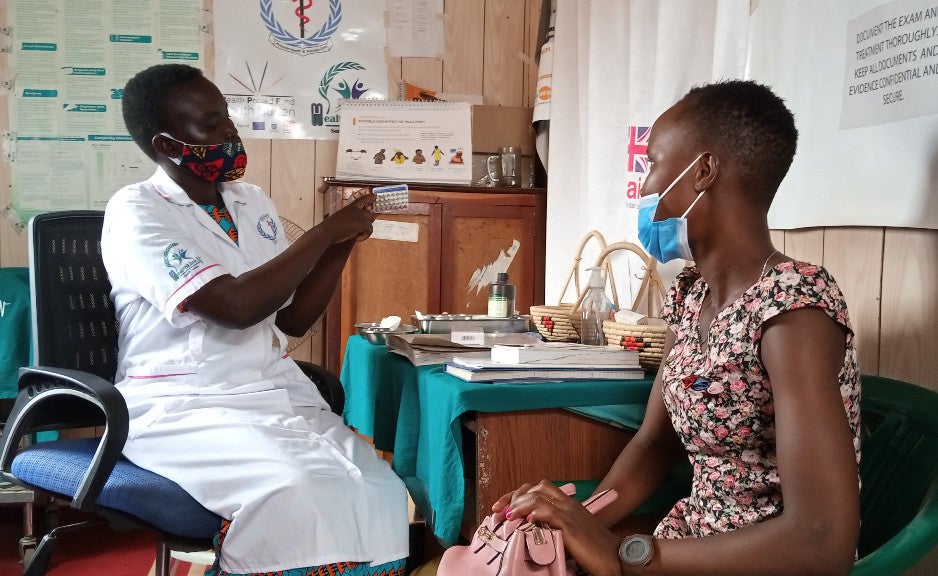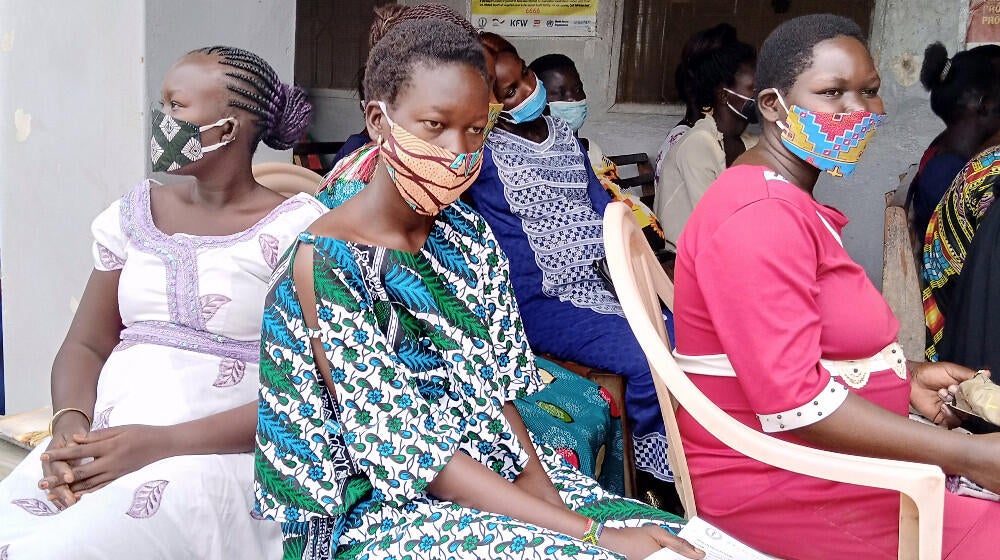Juba, South Sudan- More than a decade after its independence, South Sudan remains lagged on the path of sustainable development. The situation is complicated by constant humanitarian crises, including inter-communal clashes, disease outbreaks and increased impact floods and droughts.
Women and girls’ health and rights
With more than two-thirds (73.7 per cent) of the country’s 13.2 million people below 30 years, South Sudan needs to surmount some significant development challenges that will allow it to develop the ability to transform and utilise its human resources capital in accelerating actions towards achieving sustainable development goals by 2030.
For instance, close to half (45 per cent) of South Sudanese girls marry before the age of 18; one in three girls over the age of 15 are already pregnant before age 19. Gender inequality and gender-based violence are widespread, perpetuated by cultural norms, and exacerbated by conflict and displacement. A direct result of the pervasive gender inequality is high maternal deaths at about 789 per 100,000 live births. Additionally, an estimated 96 per cent of women aged 15-49 years currently married or in a union are unable to use or access any family planning; something which significantly contributes to the total fertility rate of 7.5 children per woman and the adolescent birth rate of 158 per 1,000 girls aged 15-19 years.
Reversing the trend
To accelerate sexual reproductive health and rights financing for the Three Transformative Results- end preventable maternal deaths, end unmet need for family planning and end gender-based violence and all harmful practices, including child marriages - UNFPA, the United Nations Population Fund is working with the South Sudanese Government and partners to mobilise domestic and external resources to achieve these results.
“Over the years, the health financing in South Sudan has heavily relied on development partners. But the government is committed to upholding our commitments including, the South Sudan Family Planning 2030 and the ICPD25 pledges. In 2019, at the Nairobi Summit, the Government pledged to increase the budget allocation for the health sector to at least 5 per cent by 2022 and 15 per cent by 2030,” says Ms Regina Lullo, Director General for Gender, Ministry of Gender, Child and Social Welfare during the Stakeholder Forum on Accelerating SRHR Financing for the Transformative Results in the Decade of Action in East and Southern Africa.

The forum was organised by UNFPA East and Southern Africa Regional Office on 09 February 2022 in collaboration with member states to share findings from the Investment cases on the Three Transformative Results, which resulted in the budget analysis undertaken in six countries- Botswana, Eswatini, Kenya, Madagascar, Namibia, and South Sudan. The investment cases highlight the priority interventions that require scaling up to achieve the three Transformative Results.
“I am hopeful that countries will use this information to inform their policy actions, and to catalyse the scale of financing required from national budgets, other sources of domestic financing and indeed, external financing. Only a step-up in collective actions will get us there, in particular, closing the financing gaps and scaling up effective coverage for the women, adolescents and youth we serve, who look to all of us for meeting their needs,” says Dr. Bannet Ndyanabangi, Regional Director a.i, UNFPA East and Southern Africa Region.
As part of its plan, South Sudan wants to scale up the coverage of high impact maternal health interventions to ensure that women have access to the basic package of health services for the prevention and treatment of complications during pregnancy and childbirth to reduce the preventable maternal mortality ratio from 789 per 100,000 live births in 2020 to 530 per 100,000 live births over the next ten years. It also wants to increase the modern contraceptive uptake from 5 to 40 per cent, with a view of ending the unmet need for family planning and averting about 700,000 unintended pregnancies in addition to ending gender-based violence and preventing every single child marriage within the next decade at an estimated cost of about $605 million.
“With a fragile health system, a challenging economic situation, highly patriarchal society on the back of a long civil conflict, there is the need for greater commitments to increase the financing to implement [South Sudan’s] high impact interventions,” says Ms. Lullo.
The country-validated investment cases present unique opportunities for national governments and partners to prioritise the unfinished business of the International Conference on Population and Development (ICPD) Agenda by defining the scale and scope of investments needed for proven, high-impact and cost-effective interventions; the corresponding impact resulting from the investments and financing scenarios available to achieve scale and pace of sustainable financing.


